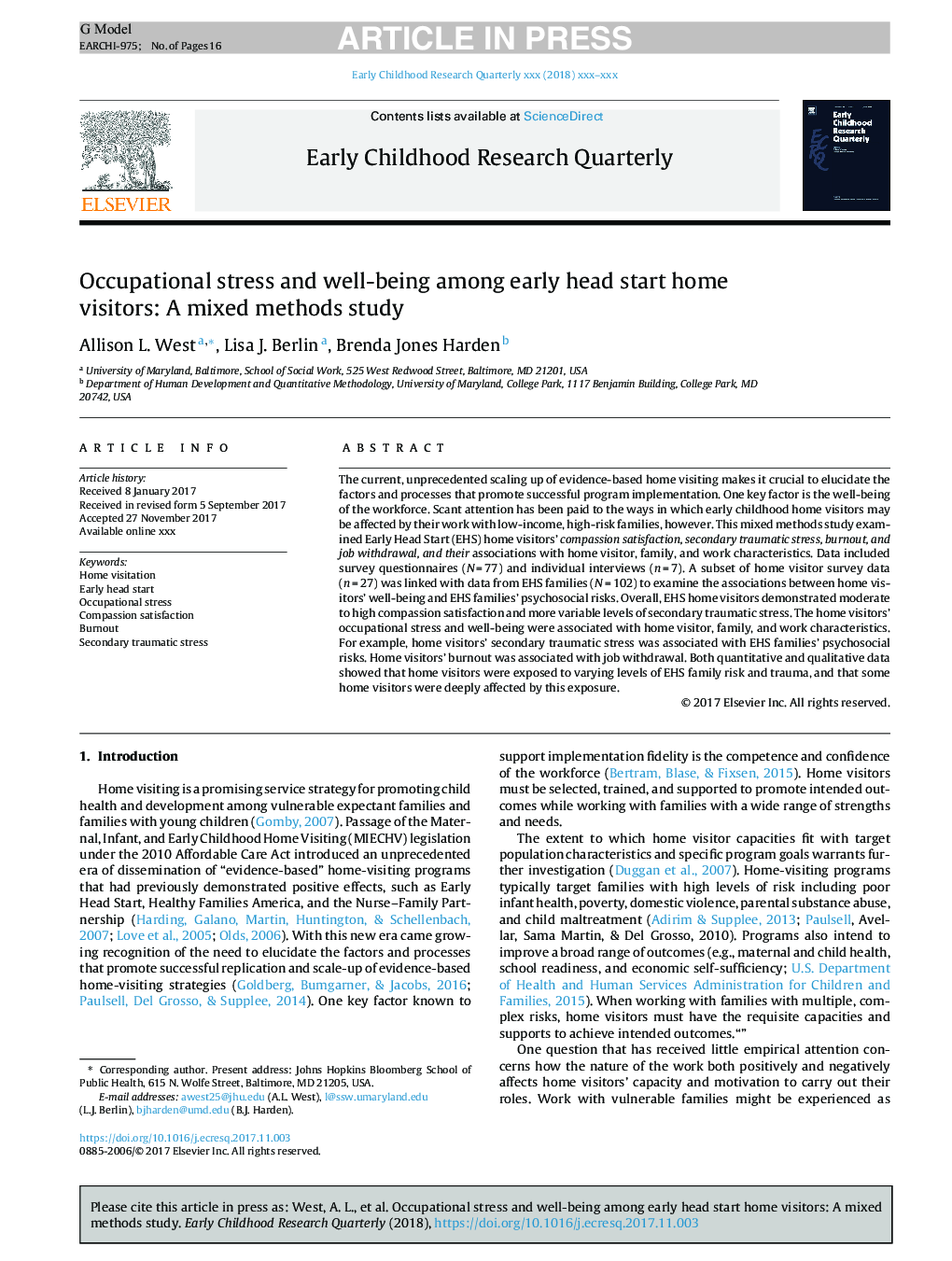| Article ID | Journal | Published Year | Pages | File Type |
|---|---|---|---|---|
| 6840638 | Early Childhood Research Quarterly | 2018 | 16 Pages |
Abstract
The current, unprecedented scaling up of evidence-based home visiting makes it crucial to elucidate the factors and processes that promote successful program implementation. One key factor is the well-being of the workforce. Scant attention has been paid to the ways in which early childhood home visitors may be affected by their work with low-income, high-risk families, however. This mixed methods study examined Early Head Start (EHS) home visitors' compassion satisfaction, secondary traumatic stress, burnout, and job withdrawal, and their associations with home visitor, family, and work characteristics. Data included survey questionnaires (Nâ¯=â¯77) and individual interviews (nâ¯=â¯7). A subset of home visitor survey data (nâ¯=â¯27) was linked with data from EHS families (Nâ¯=â¯102) to examine the associations between home visitors' well-being and EHS families' psychosocial risks. Overall, EHS home visitors demonstrated moderate to high compassion satisfaction and more variable levels of secondary traumatic stress. The home visitors' occupational stress and well-being were associated with home visitor, family, and work characteristics. For example, home visitors' secondary traumatic stress was associated with EHS families' psychosocial risks. Home visitors' burnout was associated with job withdrawal. Both quantitative and qualitative data showed that home visitors were exposed to varying levels of EHS family risk and trauma, and that some home visitors were deeply affected by this exposure.
Keywords
Related Topics
Social Sciences and Humanities
Psychology
Applied Psychology
Authors
Allison L. West, Lisa J. Berlin, Brenda Jones Harden,
